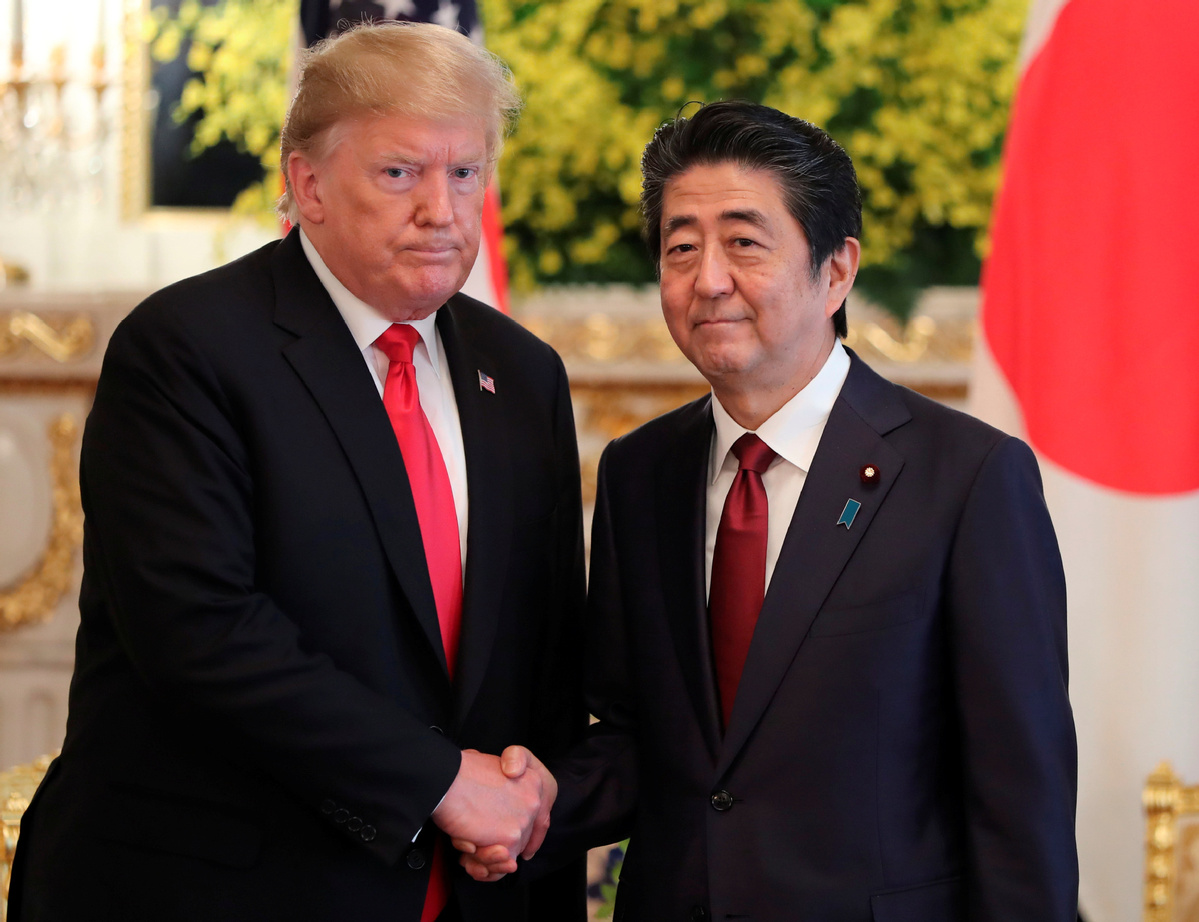Pressure persists after Trump's visit
China Daily | Updated: 2019-05-29 09:28

Closing trade deal only possible after Japan's upper house election in July
Japan rolled out the red carpet for US President Donald Trump this week, winning Tokyo a brief respite in its trade battle with Washington, but Japanese Prime Minister Shinzo Abe faces pressure to deliver concessions after a summer election.
Trump on Tuesday wound up a four-day state visit featuring golf, sumo, a state dinner with newly enthroned Emperor Naruhito and inspections of US and Japanese warships meant to showcase the alliance, but it was all shadowed by a feud over the two-way trade gap. Trump and his wife Melania boarded Air Force One at Tokyo's Haneda airport and were headed back to Washington, via a refueling stop in Alaska.
Aboard the Japanese J.S. Kaga destroyer, a helicopter carrier designed to carry submarine-hunting helicopters to distant waters, Trump, thanked Japan for planning to buy more US-made F-35B stealth fighter jets.
After his Monday meeting with Abe, Trump had said he expected the allies to be "announcing some things, probably in August, that will be very good for both countries" on trade.
On Tuesday, however, Japanese Economy Minister Toshimitsu Motegi said Trump's comment probably reflected his hope for quick progress in the trade talks.
"When you look at the exact wording of his comments, you can see that the president was voicing his hopes of swift progress in talks toward something that is mutually beneficial," Motegi told reporters at a regular cabinet meeting.
Concessions on trade before Japan's upper house election in July could upset Japanese voters, especially farmers, who are important backers of Abe's Liberal Democratic Party, although consumers might welcome cheaper food products.
Japanese officials have denied that the two countries had agreed to reach a trade deal by August.
Opposition parties said Japanese farmers would be in the line of fire after the poll, adding that Trump had said "agriculture and beef were heavily in play" on Twitter on Sunday.
"Trump's comments can only be taken to mean that Japan has in fact made major concessions on agriculture and livestock," Yukio Edano, head of the opposition Constitutional Democratic Party of Japan, told a news conference this week.
Washington wants Tokyo to cut tariffs on US farm products to restore their competitiveness.
Trump has also declared that some imported vehicles and parts posed a national security threat but delayed a decision on imposing tariffs for as long as six months, allowing more time for talks with Japan and the European Union.
Japan opposes any limits on its exports, which would violate World Trade Organization rules.
Motegi, who is in charge of trade talks, said his meeting in Tokyo last week with US Trade Representative Robert Lighthizer made clear differences remain, but no timetable has been set for further talks.
Some diplomatic experts said Abe had probably won the best results he could hope for, despite worries over trade and other policies, such as Pyongyang's nuclear programs.
Toshihiro Nakayama, a Japan fellow at the Wilson Center in Washington, said: "You cannot embrace this president with nuance. If you are going to do it, you might as well embrace him fully. Overall, I would say that it was a successful ceremonial event. What more can you expect?"
Reuters-AP-AFP-Xinhua
























